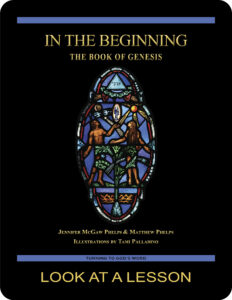dove
 It’s common for artists and writers to present the spirit of God as a dove. One of main points on my mind this week is an idea consistent with the spirit behind Lost in Translation—that a fair approach to translation of the Scriptures requires a certain degree of irreverence.
It’s common for artists and writers to present the spirit of God as a dove. One of main points on my mind this week is an idea consistent with the spirit behind Lost in Translation—that a fair approach to translation of the Scriptures requires a certain degree of irreverence.
An easy example from the Gospel According to Matthew 3:16 is the translation choice to have the spirit of God come down like a pigeon rather than to describe the spirit of God as a dove. Precisely because of this passage, doves have taken on a religious significance that can blind us from seeing that they mostly are somewhat annoying birds. Using the word pigeon gets much closer to the original meaning.
Another example from the same passage is to go with “kingdom of the skies” rather than “kingdom of heaven.” When we read heaven, we all think we immediately know what the phrase intends. We read the phrase and move on. In the original Greek however, the phrase actually was intended to be unclear and a bit confusing. We’re meant to wonder how there can be a kingdom of the skies.
Occasionally approaching translation with a touch of irreverence can help to jar us out of our preconceived notions in order to encourage new and fresh encounters with God’s Word.
related topic: kingdom of heaven
you also may like our study of the book of Genesis
 The first seven lessons of In the Beginning: The Book of Genesis, a 28-lesson Catholic Bible study with an imprimatur, provide an in-depth look at the very earliest biblical history—including the two accounts of Creation, events surrounding the Fall of Adam and Eve, the relationship between Cain and Abel, and the baptismal foreshadowing present in the account of Noah and the Flood. Remaining lessons look at lives of the patriarchs Abraham, Isaac, Jacob, and Joseph. Click on the book’s cover to view a sample lesson.
The first seven lessons of In the Beginning: The Book of Genesis, a 28-lesson Catholic Bible study with an imprimatur, provide an in-depth look at the very earliest biblical history—including the two accounts of Creation, events surrounding the Fall of Adam and Eve, the relationship between Cain and Abel, and the baptismal foreshadowing present in the account of Noah and the Flood. Remaining lessons look at lives of the patriarchs Abraham, Isaac, Jacob, and Joseph. Click on the book’s cover to view a sample lesson.
 Click on the picture of the statue of Moses with horns (above) to learn more about Lost in Translation. A new entry is archived each Monday. Contact us to receive Lost in Translation by email every week. You may use any of the contact links on our website to ask Matthew a question.
Click on the picture of the statue of Moses with horns (above) to learn more about Lost in Translation. A new entry is archived each Monday. Contact us to receive Lost in Translation by email every week. You may use any of the contact links on our website to ask Matthew a question.
